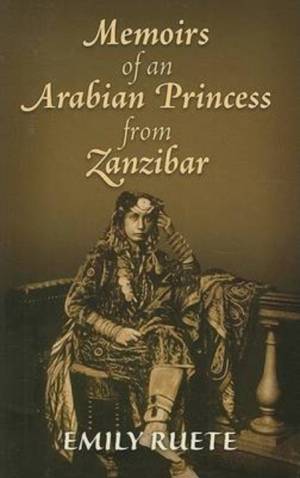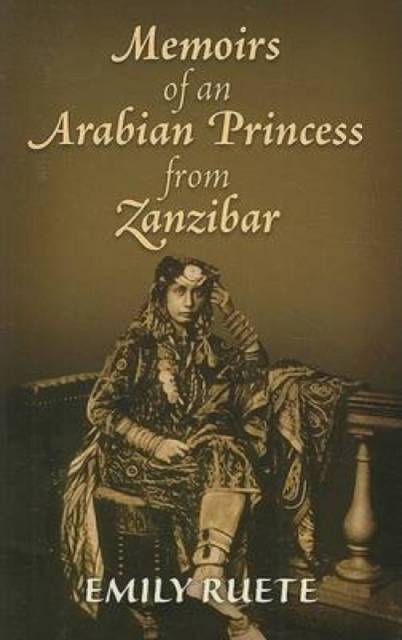
- Afhalen na 1 uur in een winkel met voorraad
- Gratis thuislevering in België vanaf € 30
- Ruim aanbod met 7 miljoen producten
- Afhalen na 1 uur in een winkel met voorraad
- Gratis thuislevering in België vanaf € 30
- Ruim aanbod met 7 miljoen producten
Omschrijving
Return to an era when Zanzibar was ruled by sultans, and enter a vanished world of harems, slave trading, and court intrigues. In this insider's story, a sultan's daughter who fled her gilded cage offers a compelling look at nineteenth-century Arabic and African royal life. After years of exile in Europe, the former princess wrote this fascinating memoir as a legacy for her children and a warm reminiscence of her island home.
Born Salamah bint Said, Princess of Zanzibar, in 1844, author Emily Ruete grew up in a harem with scores of siblings. The royal family maintained its fabulous wealth and luxury with a robust traffic in ivory, spices, and human bondage. Ruete ventures beyond the palace, into the city and plantations where European traders, missionaries, and colonists exercised a growing influence. After her dramatic elopement with a German trader, Ruete attained the perspective to form a comparison of the lives of women in Muslim society with those of their European contemporaries. Originally published in 1886, this remarkable autobiography will captivate readers interested in Zanzibar and Eastern Africa as well as students of Arabic, Islam, and women's studies.
Born Salamah bint Said, Princess of Zanzibar, in 1844, author Emily Ruete grew up in a harem with scores of siblings. The royal family maintained its fabulous wealth and luxury with a robust traffic in ivory, spices, and human bondage. Ruete ventures beyond the palace, into the city and plantations where European traders, missionaries, and colonists exercised a growing influence. After her dramatic elopement with a German trader, Ruete attained the perspective to form a comparison of the lives of women in Muslim society with those of their European contemporaries. Originally published in 1886, this remarkable autobiography will captivate readers interested in Zanzibar and Eastern Africa as well as students of Arabic, Islam, and women's studies.
Specificaties
Betrokkenen
- Auteur(s):
- Uitgeverij:
Inhoud
- Aantal bladzijden:
- 288
- Taal:
- Engels
Eigenschappen
- Productcode (EAN):
- 9780486471211
- Verschijningsdatum:
- 1/05/2009
- Uitvoering:
- Paperback
- Formaat:
- Trade paperback (VS)
- Afmetingen:
- 137 mm x 214 mm
- Gewicht:
- 299 g

Alleen bij Standaard Boekhandel
+ 26 punten op je klantenkaart van Standaard Boekhandel
Beoordelingen
We publiceren alleen reviews die voldoen aan de voorwaarden voor reviews. Bekijk onze voorwaarden voor reviews.









